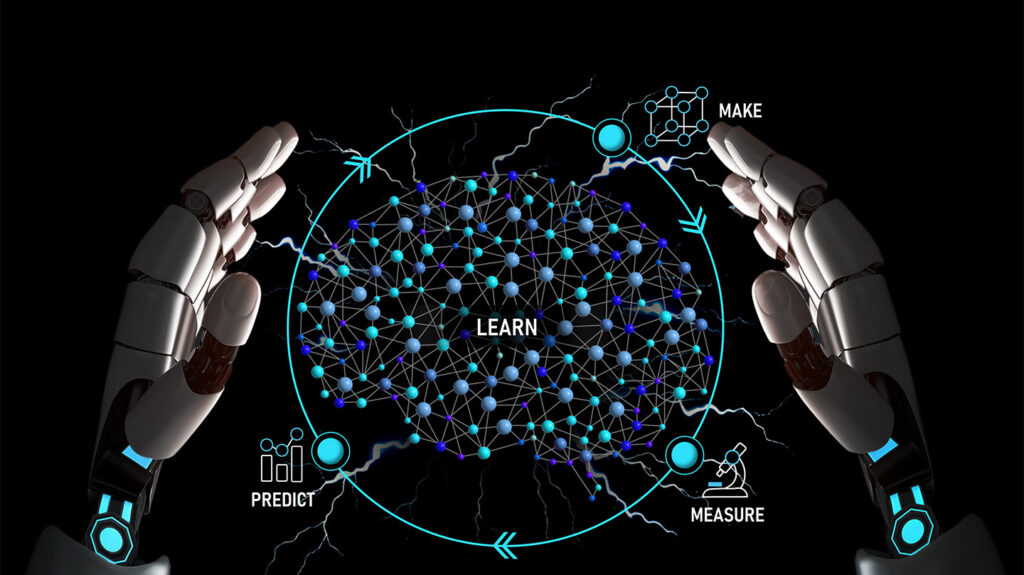AI-Powered Scientific Discovery Accelerates Breakthroughs in Materials Science

Scientific discovery has long depended on trial-and-error experimentation, extensive research cycles, and manual data analysis, making breakthroughs in materials science, chemistry, and physics slow and costly. However, in October 2024, AI-driven scientific discovery models reached new levels of sophistication, dramatically accelerating the development of next-generation materials and novel compounds.
The integration of AI-powered computational simulations, self-learning research algorithms, and autonomous laboratory robotics allowed scientists to identify and synthesize groundbreaking materials in record time. AI was no longer just analyzing existing data—it was now actively proposing new materials, optimizing molecular structures, and revolutionizing the way scientific discoveries were made.
How AI Was Transforming Materials Science and Innovation
Traditional materials research relied on labor-intensive experimentation, slow hypothesis testing, and high-cost laboratory trials, often requiring years before viable materials could be developed and commercialized. AI-powered research models introduced a fundamentally different approach, allowing scientists to:
- Simulate molecular structures and chemical reactions instantly – AI-driven simulations predicted how different elements and compounds interact, drastically reducing the need for physical testing.
- Optimize material properties for specific applications – AI-assisted research identified ideal material compositions for stronger, lighter, and more heat-resistant compounds.
- Automate materials synthesis and discovery – Autonomous labs equipped with AI-controlled robotic systems conducted continuous, self-improving experiments, testing thousands of chemical variations per day.
These advancements transformed materials science into an AI-accelerated field, dramatically reducing development time while increasing precision and efficiency.
Industries Rapidly Adopting AI-Driven Material Discovery
AI-powered materials research was being rapidly integrated into industries where new material advancements were critical for innovation and performance improvements.
1. AI in Aerospace and Advanced Manufacturing
- AI-driven materials research enabled the development of ultra-lightweight, heat-resistant alloys for spacecraft and next-generation aviation.
- AI-assisted composite material design optimized structural integrity and energy absorption, enhancing safety and efficiency in aerospace engineering.
2. AI in Electronics and Semiconductor Research
- AI-powered materials discovery accelerated the search for superconductors, improving energy efficiency in computing and electronics.
- AI-driven research optimized nanomaterials for faster, more efficient semiconductor chips, driving progress in quantum computing.
3. AI in Energy and Sustainability Innovation
- AI-assisted material design facilitated the development of high-efficiency solar panels and next-generation battery technologies.
- AI-driven catalysts optimized hydrogen fuel production and carbon capture materials, supporting global sustainability efforts.
These applications demonstrated that AI was no longer just a tool for research—it was redefining the speed and precision of materials innovation.
Challenges and Ethical Considerations in AI-Powered Scientific Discovery
Despite its advantages, AI-driven materials research introduced complex challenges and ethical concerns that required careful oversight.
1. Reproducibility and Validation of AI-Generated Materials
- AI-suggested materials required rigorous experimental validation to confirm their real-world feasibility.
- Scientists worked on developing standardized AI models for material discovery, ensuring reliability across different research institutions.
2. Ethical and Security Implications of AI-Designed Materials
- AI-generated materials could be used in weapons development or other high-risk applications, raising concerns about ethical oversight.
- Regulatory bodies explored international agreements on AI-assisted materials research to ensure ethical application.
3. Intellectual Property and AI-Generated Discoveries
- AI-driven material designs raised questions about patent ownership and the role of AI in scientific intellectual property.
- Legal frameworks were evolving to define how AI-generated discoveries should be credited and commercialized.
Addressing these concerns was crucial in ensuring AI-powered scientific advancements remained responsible, ethical, and beneficial for global progress.
What’s Next for AI in Scientific Research?
With AI continuing to push the boundaries of scientific discovery, future innovations were expected to include:
- AI-driven molecular manufacturing – AI-powered synthesis platforms would enable on-demand material fabrication, allowing for real-time production of custom materials.
- Quantum AI for hyper-accurate material simulations – AI integrated with quantum computing would unlock new breakthroughs in superconductors, nanotechnology, and complex chemistry.
- Decentralized AI research networks – Global AI-powered collaboration platforms would allow scientists worldwide to share, refine, and test AI-generated material discoveries in real time.
These developments positioned AI as a transformative force in accelerating scientific progress across multiple fields.
A Defining Moment for AI in Scientific Discovery
The rise of AI-driven material discovery models in October 2024 marked a turning point in how scientists approached research and experimentation. Instead of relying solely on trial-and-error experimentation, researchers were now using AI to generate hypotheses, simulate materials, and automate testing at unprecedented speeds.
However, as AI-driven scientific discoveries became more prevalent, ensuring transparency, reproducibility, and ethical research practices remained essential. Moving forward, AI’s role in scientific innovation would depend on its integration with human expertise, regulatory oversight, and collaborative knowledge-sharing.




